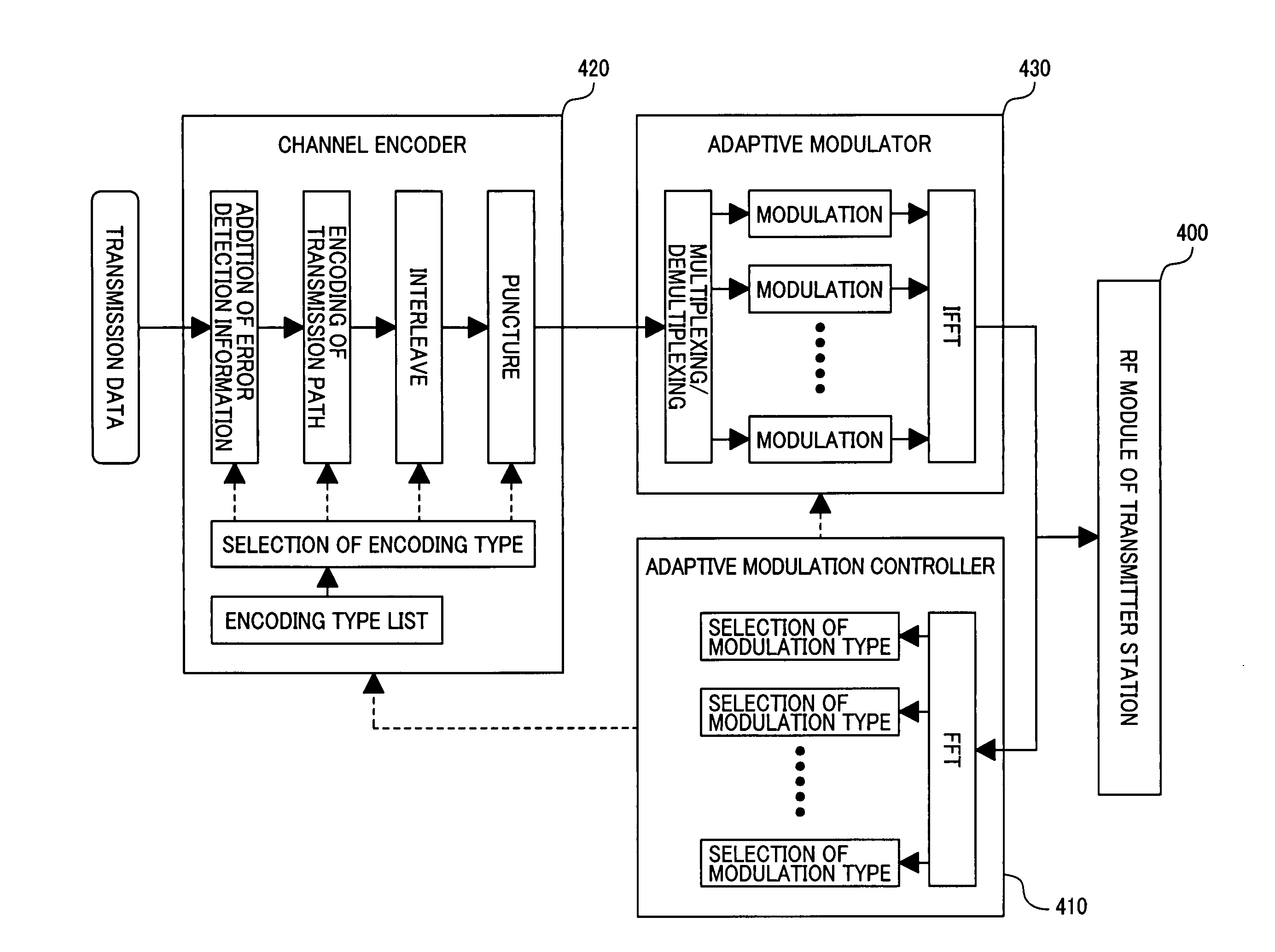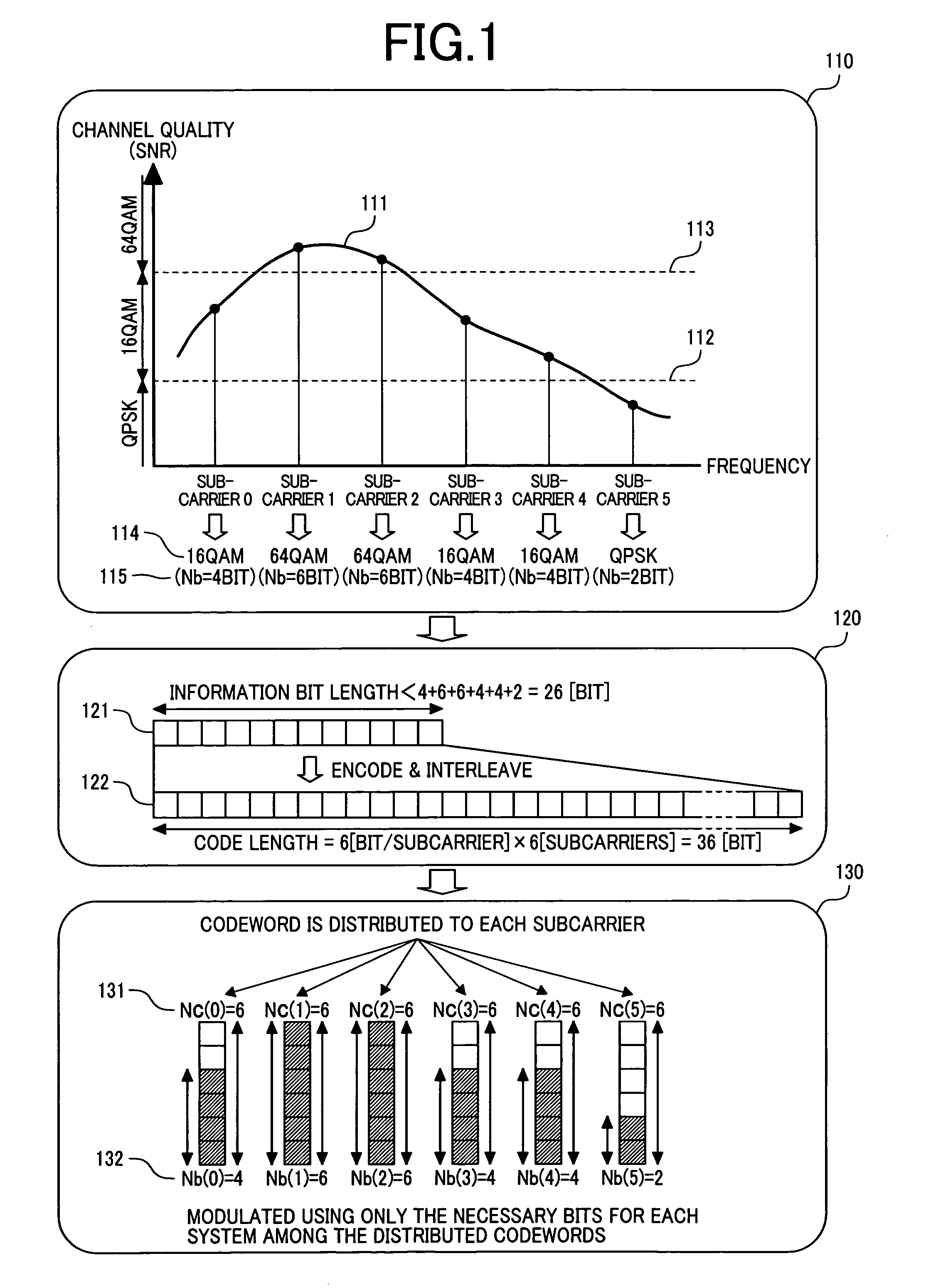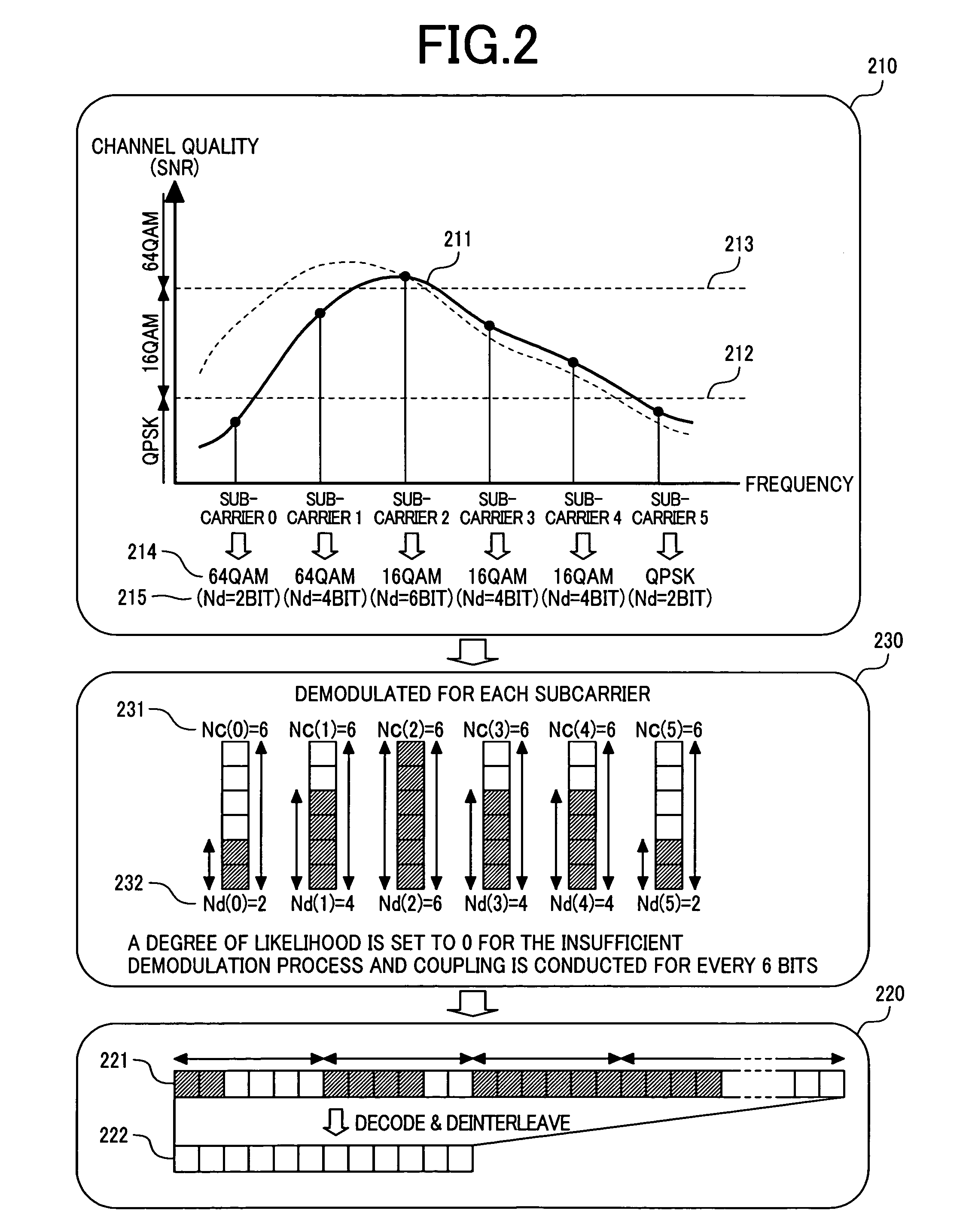Adaptive modulation scheme and data rate control method
a modulation scheme and data rate technology, applied in the field of radio communication systems, can solve problems such as data location deviation, continuous errors, and suppression of the throughput of data signals
- Summary
- Abstract
- Description
- Claims
- Application Information
AI Technical Summary
Benefits of technology
Problems solved by technology
Method used
Image
Examples
Embodiment Construction
[0029]Preferred embodiments of the present invention will be described with reference to the accompanying drawings. However, as an example, the maximum number of bits per symbol of each subcarrier is set to 6 bits and as a modulation type, an adaptive modulation type using 64 QAM or 16 QAM or QPSK has been used. However, it should be understood that the present invention is not limited to such maximum bits and modulation type. Namely, the present invention can be adapted in general to a system in which the maximum bits per symbol is set to 2m bits and demodulation is conducted with the 22kQAM (k is a natural number equal to or less than m) modulation type. Moreover, the 4QAM modulation type, in which k=1, indicates a modulation type similar to QPSK.
[0030]First, an example of the configuration of the transmitter station and the receiver station and the flow of signals will be described on the basis of the structural diagrams of the transmitter station and receiver station, using the ...
PUM
 Login to View More
Login to View More Abstract
Description
Claims
Application Information
 Login to View More
Login to View More - R&D
- Intellectual Property
- Life Sciences
- Materials
- Tech Scout
- Unparalleled Data Quality
- Higher Quality Content
- 60% Fewer Hallucinations
Browse by: Latest US Patents, China's latest patents, Technical Efficacy Thesaurus, Application Domain, Technology Topic, Popular Technical Reports.
© 2025 PatSnap. All rights reserved.Legal|Privacy policy|Modern Slavery Act Transparency Statement|Sitemap|About US| Contact US: help@patsnap.com



